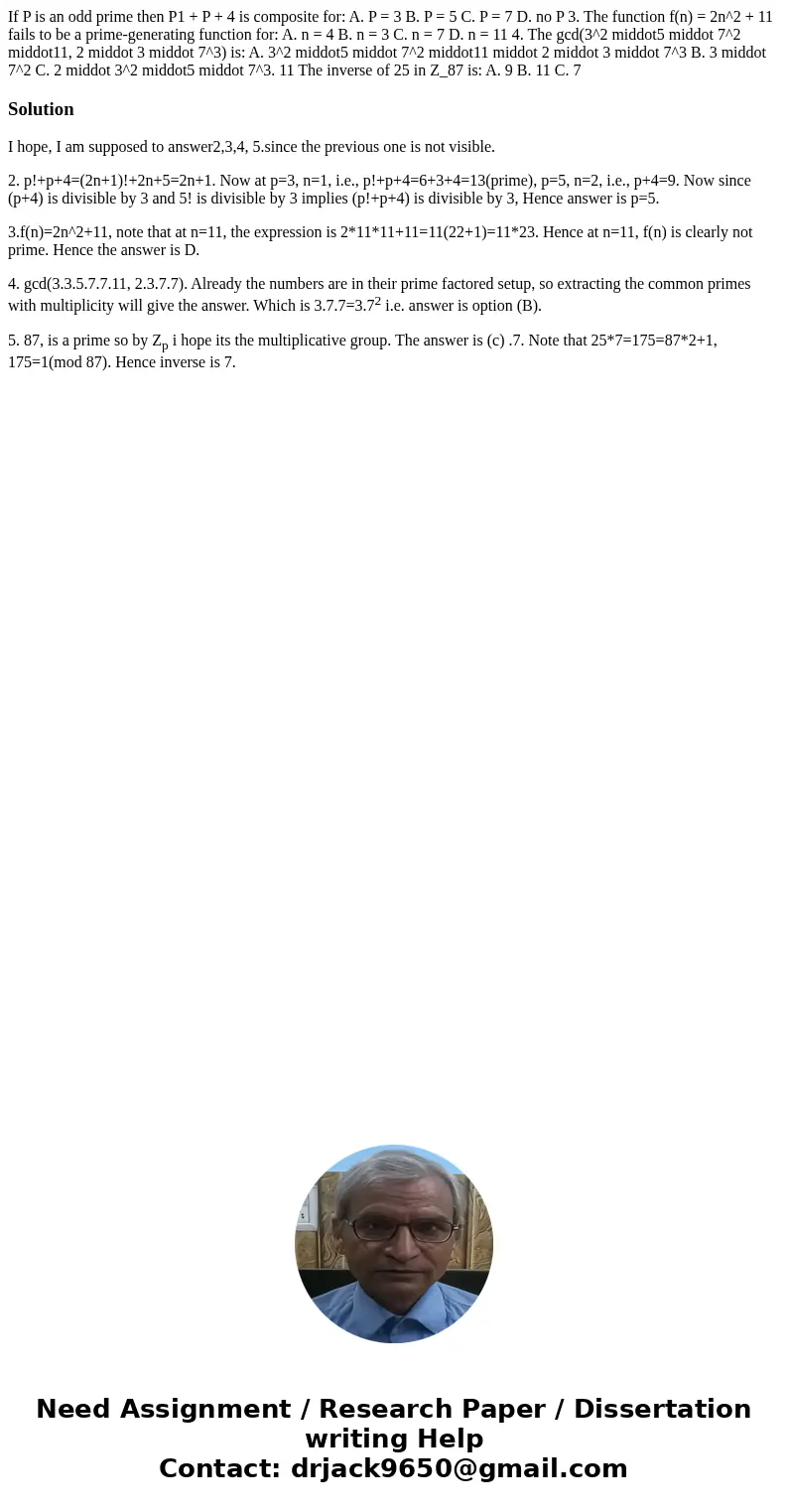If P is an odd prime then P1 P 4 is composite for A P 3 B
Solution
I hope, I am supposed to answer2,3,4, 5.since the previous one is not visible.
2. p!+p+4=(2n+1)!+2n+5=2n+1. Now at p=3, n=1, i.e., p!+p+4=6+3+4=13(prime), p=5, n=2, i.e., p+4=9. Now since (p+4) is divisible by 3 and 5! is divisible by 3 implies (p!+p+4) is divisible by 3, Hence answer is p=5.
3.f(n)=2n^2+11, note that at n=11, the expression is 2*11*11+11=11(22+1)=11*23. Hence at n=11, f(n) is clearly not prime. Hence the answer is D.
4. gcd(3.3.5.7.7.11, 2.3.7.7). Already the numbers are in their prime factored setup, so extracting the common primes with multiplicity will give the answer. Which is 3.7.7=3.72 i.e. answer is option (B).
5. 87, is a prime so by Zp i hope its the multiplicative group. The answer is (c) .7. Note that 25*7=175=87*2+1, 175=1(mod 87). Hence inverse is 7.

 Homework Sourse
Homework Sourse